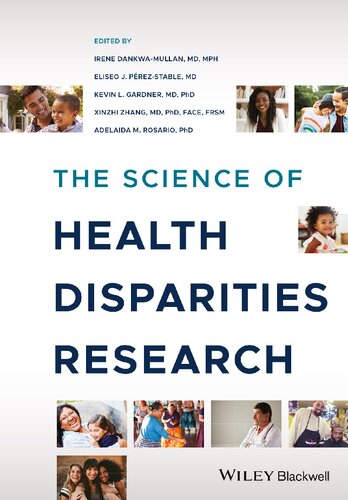

Most ebook files are in PDF format, so you can easily read them using various software such as Foxit Reader or directly on the Google Chrome browser.
Some ebook files are released by publishers in other formats such as .awz, .mobi, .epub, .fb2, etc. You may need to install specific software to read these formats on mobile/PC, such as Calibre.
Please read the tutorial at this link: https://ebookbell.com/faq
We offer FREE conversion to the popular formats you request; however, this may take some time. Therefore, right after payment, please email us, and we will try to provide the service as quickly as possible.
For some exceptional file formats or broken links (if any), please refrain from opening any disputes. Instead, email us first, and we will try to assist within a maximum of 6 hours.
EbookBell Team

5.0
28 reviewsIntegrates the various disciplines of the science of health disparities in one comprehensive volume
The Science of Health Disparities Research is an indispensable source of up-to-date information on clinical and translational health disparities science. Building upon the advances in health disparities research over the past decade, this authoritative volume informs policies and practices addressing the diseases, disorders, and gaps in health outcomes that are more prevalent in minority populations and socially disadvantaged communities. Contributions by recognized scholars and leaders in the field—featuring contemporary research, conceptual models, and a broad range of scientific perspectives—provide an interdisciplinary approach to reducing inequalities in population health, encouraging community engagement in the research process, and promoting social justice.
In-depth chapters help readers better understand the specifics of minority health and health disparities while demonstrating the importance of advancing theory, refining measurement, improving investigative methods, and diversifying scientific research. In 26 chapters, the book examines topics including the etiology of health disparities research, the determinants of population health, research ethics, and research in African American, Asians, Latino, American Indian, and other vulnerable populations. Providing a unified framework on the principles and applications of the science of health disparities research, this important volume:
A significant contribution to the field, The Science of Health Disparities Research is an essential resource for students and basic and clinical researchers in genetics, population genetics, and public health, health care policymakers, and epidemiologists, medical students, and clinicians, particularly those working with minority, vulnerable, or underserved populations.